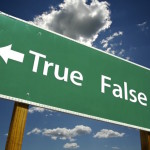Why God is the Ground of Objective Morality
by Joe Heschmeyer
Filed under Objective Morality
EDITOR'S NOTE: Today continues our eight-part debate on the resolution, "Does objective morality depend on the existence of God?" We'll hear from two sharp young thinkers. Joe Heschmeyer, a Catholic seminarian in Kansas City, Kansas, will argue the affirmative view. Steven Dillon, a gifted philosopher and a former Catholic seminarian, will argue the negative. The eight parts will run as follows:
Monday (11/4) - Joe's opening statement (affirmative)
Tuesday (11/5) - Steven's opening statement (negative)
Wednesday (11/6) - Joe's rebuttal (affirmative)
Thursday (11/7) - Steven's rebuttal (negative)
Friday (11/8) - Questions exchanged (three questions each)
Saturday (11/9) - Answers (Joe and Steven answer each other's questions)
Sunday (11/10) - Joe's closing statement (affirmative)
Monday (11/11) - Steven's closing statement (negative)
Today we begin the final two posts with a closing statement from Joe. Both Joe and Steven have agreed to be present in the comment boxes, so if you have a specific question for them, ask away!
In affirming the resolution, “Does objective morality depend upon God?” I’ve argued two things: (a) that objective morality can be grounded in God; and (b) that objective morality cannot be grounded in anything other than God. Steven challenged (b), claiming that moral truths like “suffering is inherently bad” are simply and intuitively true, and do not rely upon God.
In my rebuttal, I asked, “what does it mean to call agony ‘intrinsically bad,’ exactly?” If we mean that agony is inherently painful, that’s a tautology, not a moral claim. As Peter Geach explained in Good and Evil:
"[I]f I call a man a good burglar or a good cut-throat I am certainly not commending him myself; one can imagine circumstances in which these descriptions would serve to guide another man's choice (e.g. if a commando leader were choosing burglars and cut-throats for a special job), but such circumstances are rare and cannot give the primary sense of the descriptions. It ought to be clear that calling a thing a good A does not influence choice unless the one who is choosing happens to want an A; and this influence on action is not the logically primary force of the word “good”."
So, to turn “agony is intrinsically bad (painful)” into an objective moral claim, you would have to have an objective moral system (e.g., that we should always pursue pleasure and avoid painful or unpleasant things). But the terms don't carry that system within themselves, and there's no objective, non-theistic way to construct this or any other moral system.
On the other hand, if we mean that agony is an intrinsic evil, that’s false. Steven has yet to define his term, but his answer to Question 1 suggests that this is his meaning. I’ll proceed under that assumption.
To say that an act is intrinsically evil is to say that it may never be done. By “evil,” we mean that sort of thing that ought not be done; by “intrinsically,” we mean that it ought not be done of itself, without consideration of any consequences. We ought not rape, murder, etc., regardless of the good or bad consequences of an individual act of rape or murder.
But that’s not what Steven argues at all. He says that suffering can be inflicted if it is the “lesser of two evils.” I asked about the case of a woman intentionally getting pregnant, given the pains of childbirth. He says that “if a woman has to endure the excruciating pain of child-birth so that the child may be born, we should permit the suffering, otherwise a child dies.” That's telling, but not my question: if a woman chooses to get pregnant, the alternative isn’t that a child dies. It’s that a child is never conceived. So the “lesser of two evils” principle doesn’t apply. By Steven’s initial analysis, it would seem that every instance of intentional conception is evil. But now, it seems that he’ll permit agony not only to avoid greater evils, but also to achieve greater goods (like procreation).
If it is okay to inflict agony in some cases, then agony is not intrinsically evil. This refutes the claim that “agony is intrinsically bad (evil).”
At this point, Steven seems to have shifted to utilitarianism, a moral system which I rejected in my opinion statement, in a passage left unrebutted:
"[U]tilitarianism leads to unconscionable results. No action—slavery, rape, genocide, torture, etc.—could ever be described as objectively evil. We’d have to determine how much pleasure the slavemaster, rapist, genocidaire, and torturer derive (along with the pleasure or displeasure of the general public). Only after we’ve weighed all of those factors, could we determine whether the action is right or wrong."
Steven hasn’t, and can’t, show this moral framework to be true, or binding upon anyone.
Stepping back from the particulars of the claim “agony is intrinsically bad,” is the broader problem of moral intuitionism, which I raised in my rebuttal: namely, that it's not an objective moral code, since intuitions differ from person to person; that it provides no basis for rational decision-making, because there's no mechanism for resolving competing values; and that all true moral intuition relies upon God.
Steven gives an intriguing illustration of the moral system he's defending:
"Think of a tall skyscraper. What grounds it? Well, you might say its foundation. And what grounds its foundation? You could say the land in which it is built in or upon. And what grounds the land? You could continue asking of each proposed grounding structure what grounds it. Assuming this cannot continue on indefinitely, you’ll reach a point where there simply is no deeper grounding structure: you’ve struck rock bottom. I’m saying that moral facts are grounded by other moral facts, and so on until we reach moral facts so foundational there’s just no further to go. This is radically different from saying that there is no rock bottom, and moral facts just sort of...free-float."
I largely agree with this view. In fact, it's virtually identical to the first three of Thomas' Five Ways. But Steven stops too soon in his digging into the foundation: you can't logically conclude that there are several rock bottoms. Even the moral claims he's arguing that are irreducibly fundamental aren't. If they were, he couldn't say that they are permissible in some cases. To say that a certain truth is foundational, if it means anything, means that it's not just true in certain situations.
This is why moral intuitionism provides no capacity for rational moral decision-making: if both equitable distribution of goods and respect for private property are irreducibly foundational moral principles, what do we do when they clash? It's an irresistible force and an unmovable object: a contradiction that exposes the incoherence of the intuitionist worldview. Likewise, in saying that agony is sometimes permissible, Steven shows that it's not a foundational principle that agony is inherently evil.
Still, I agree with his impulse, to dig further and further into the metaphysical foundations. And the solution is to dig deeper, to the First Cause. There must be a single First Cause, or you can't get this moral system off the ground. This First Cause can't be anyone other than God (as we've seen, all other alternatives fail to create an objective moral system). That's what I meant in the rebuttal about all forms of intuitionism relying upon God.
Steven objects that it doesn't make sense to claim that objective morality depends upon God because we don't have anything literal to say about God. Here, I must raise an objection: Steven complains that God isn't reducible to the unaided human intellect. But a being that could be comprehended by the unaided human intellect would be, in some way, smaller than the intellect, and therefore, not God.
What Do We Mean By God?
We can affirm that God is Pure Being, Pure Goodness, etc., but we can’t tell you, short of encountering God directly, what that is like. It would be irrational to expect us to be able to. Furthermore, we must ask a question: is it true that the only concepts we can know of are ones that we can make literal, positive statements about? It seems to me there is at least one that breaks the mold, acknowledged by both theists and atheists alike: infinity.
Just as we often mistake God for a really big being (instead of Subsistent Being Itself, the Ground of all Being), we often misunderstand infinity as a really big number. Not so, says mathematician Raymond Nickerson:
"[I]n fact infinity is not a very large number; it is not a number at all, and such phrases as ‘approaching infinity,’ ‘an almost infinite number,’ and ‘nearly infinite in extent’ are contradictions in terms. Think of the largest number you can imagine. How close is this to infinity? Not close. […] Between it—our largest number—and infinity there will remain a gulf of infinite extent, and there is nothing we can do to decrease it."
Look at the sort of claims that we can make about infinity: its very name is a negation (denying that it possesses finitude). Whether we call it infinite, boundless, limitless, etc., we’re making negative claims. But these negative claims still tell us something concrete about what infinity is, by showing us what it isn’t.
St. Anselm properly defines God as “that, than which nothing greater can be conceived.” This sounds like unnecessary verbiage, and the philosopher Descartes opts for the simpler formulation that God is a “supremely perfect being.” But the difference between Anselm’s and Descartes’ definitions of God turns out to be infinite. Anselm’s definition, like infinity, is a negative claim: it defines what God isn’t, and gives us a hint (but little more than a hint) of what He is, as a result.
Therefore the proposition "God exists" can be affirmed without directly knowing the nature of God, just as we can say that Leonardo da Vinci painted the Mona Lisa without knowing what he was like. And just as we can know that there is such a thing as infinity, even if we’re unsatisfied with the limitations of our knowledge of the limitless, we can say that there is such a thing as God, even if we’re unsatisfied with the limitations of our knowledge of Him.
Fortunately, unlike with infinity, God reveals Himself to us, enabling us to know Him in a way that we would never be able to by unaided human reason. This relationship with Him, followed to its logical conclusion, terminates in the Beatific Vision, in which we take on divinity in some way: we know God with God’s own knowledge of Himself.
Conclusion
Without God, all of reality is literally pointless: it’s a random cosmic accident, and there’s no objective, morally-binding reason to do good and avoid evil. The two logical conclusions from this are either that “God exists” or that objective morality doesn’t exist. Steven gives good reasons, based upon moral intuition, to reject the second option. But that’s a proof for the existence of God.
Yet once that we’ve established that God exists, what can we say? Hopefully, it is now clear that since God is infinite, our unaided knowledge of Him is limited to negative and analogical statements. Yet our minds crave a deeper knowledge of God than these statements provide. This is a preamble, and an invitation to accept His offer of a relationship.
Thanks again to Steven for a civil and worthwhile debate, and for Brandon and the folks at Strange Notions for hosting!
Related Posts
Note: Our goal is to cultivate serious and respectful dialogue. While it's OK to disagree—even encouraged!—any snarky, offensive, or off-topic comments will be deleted. Before commenting please read the Commenting Rules and Tips. If you're having trouble commenting, read the Commenting Instructions.













